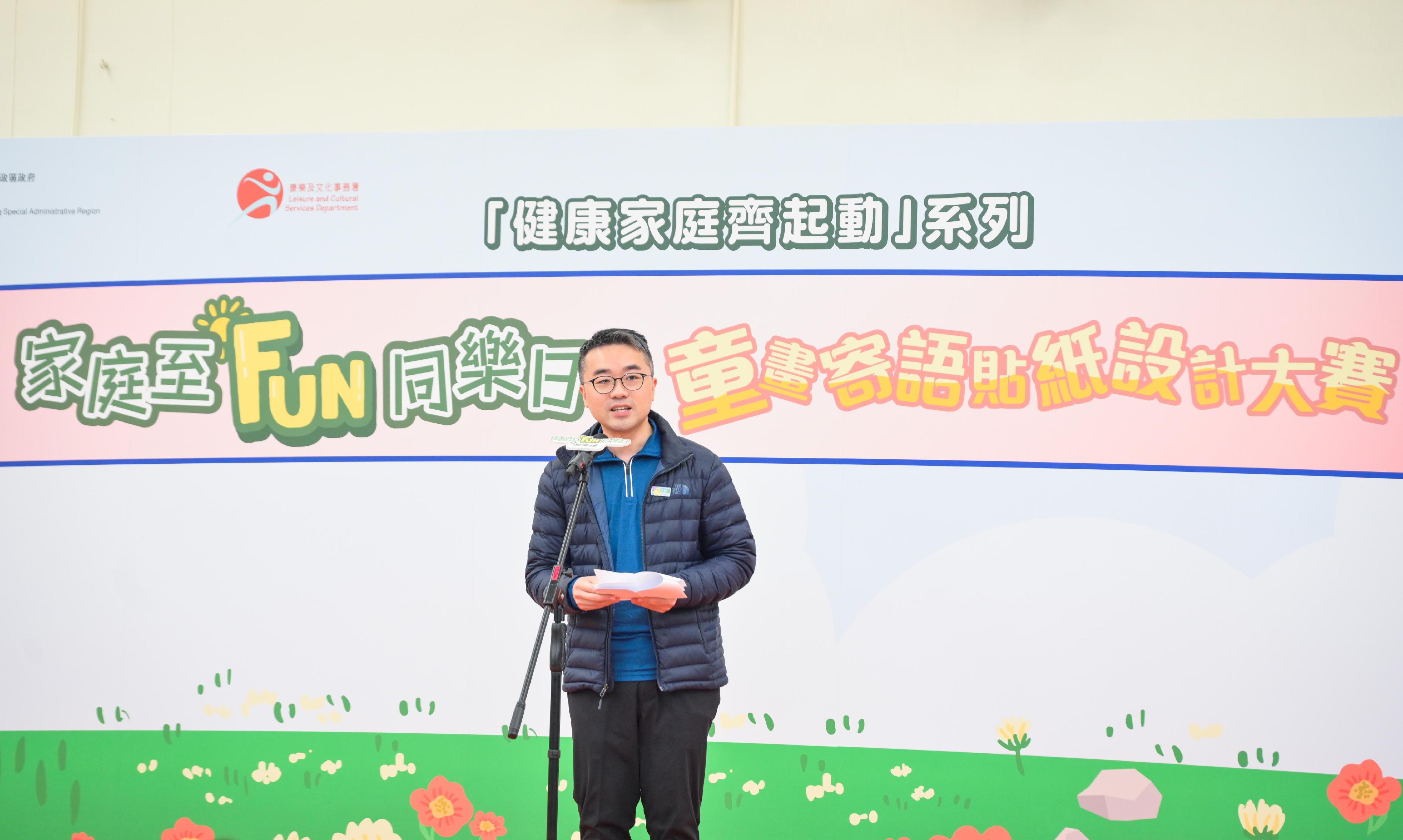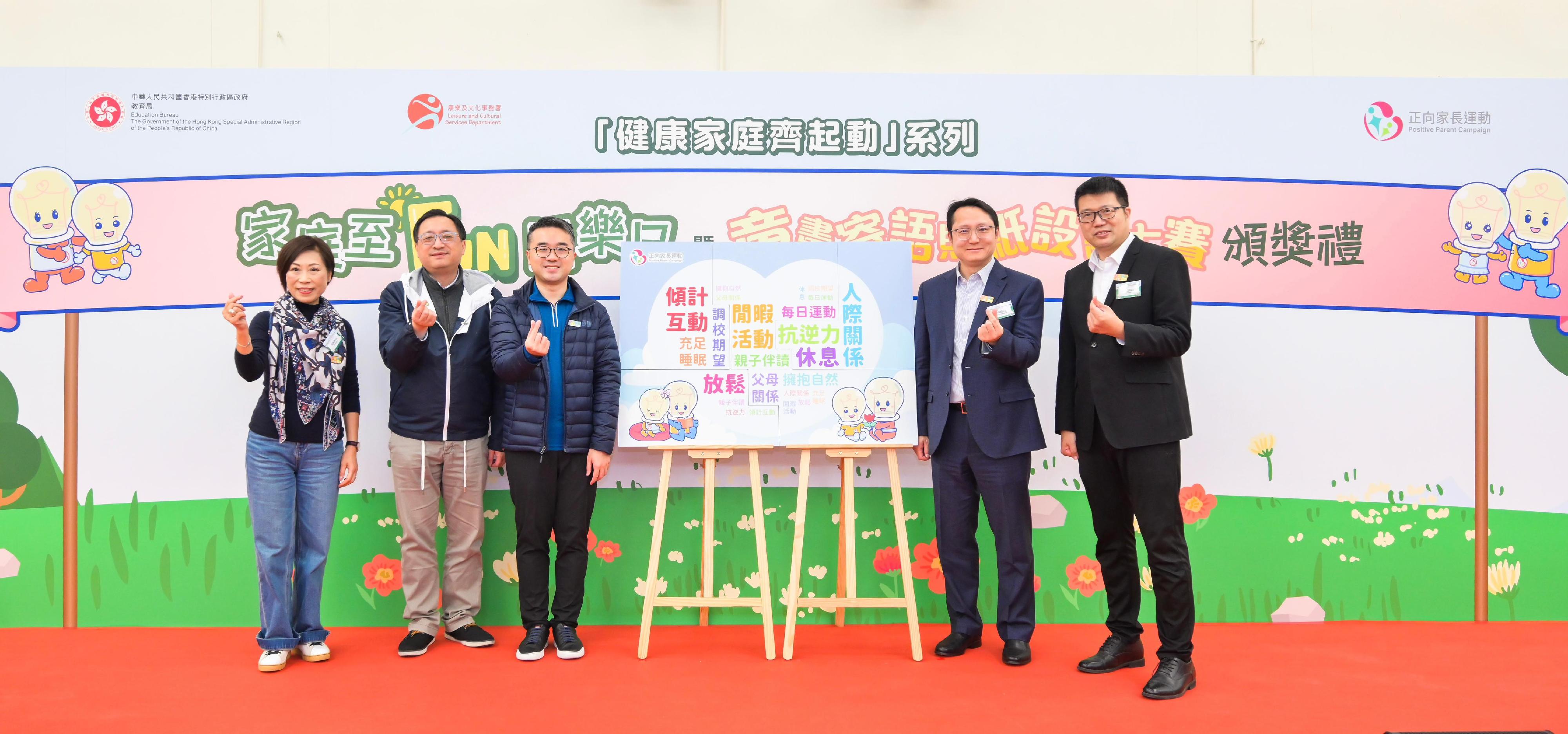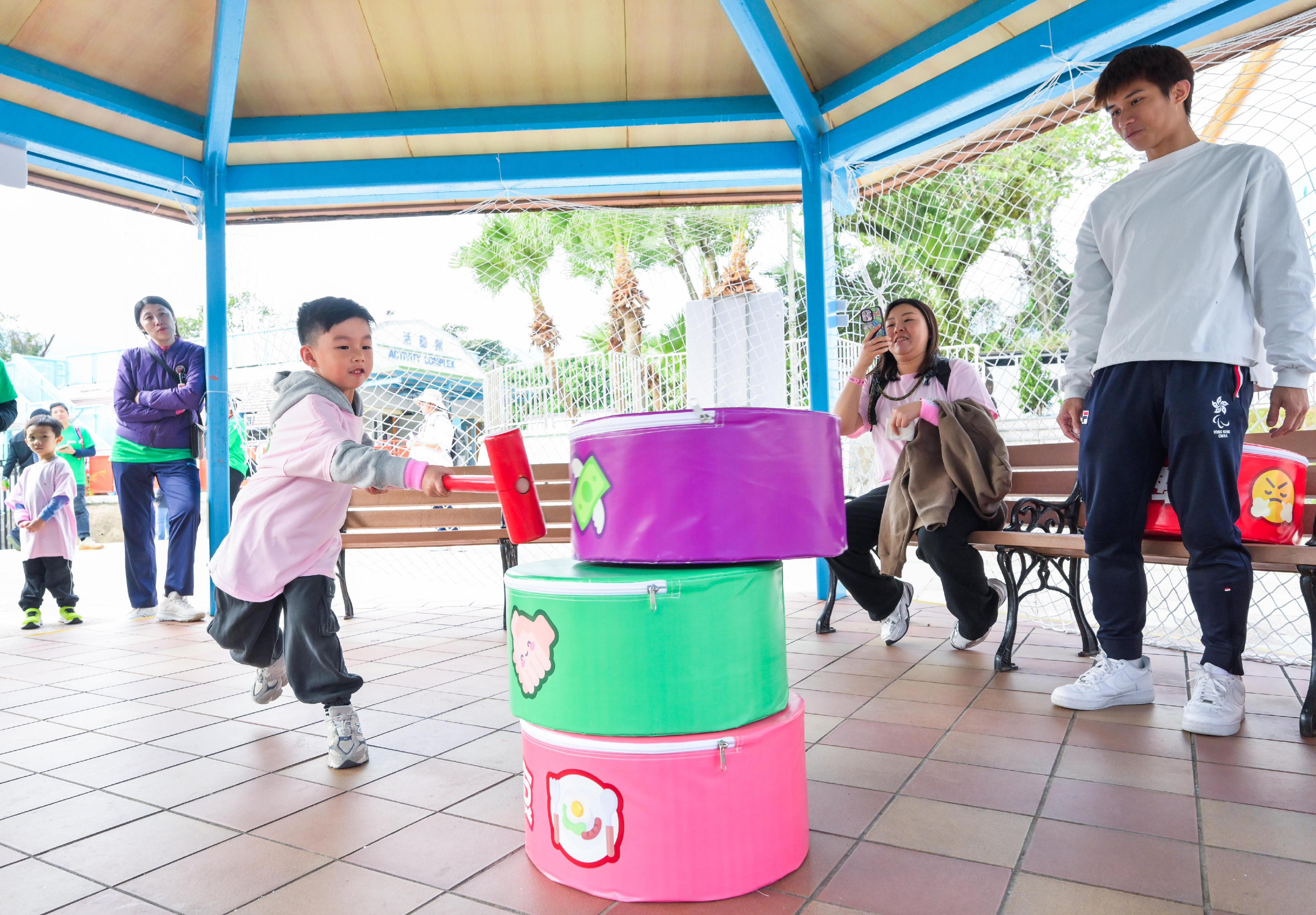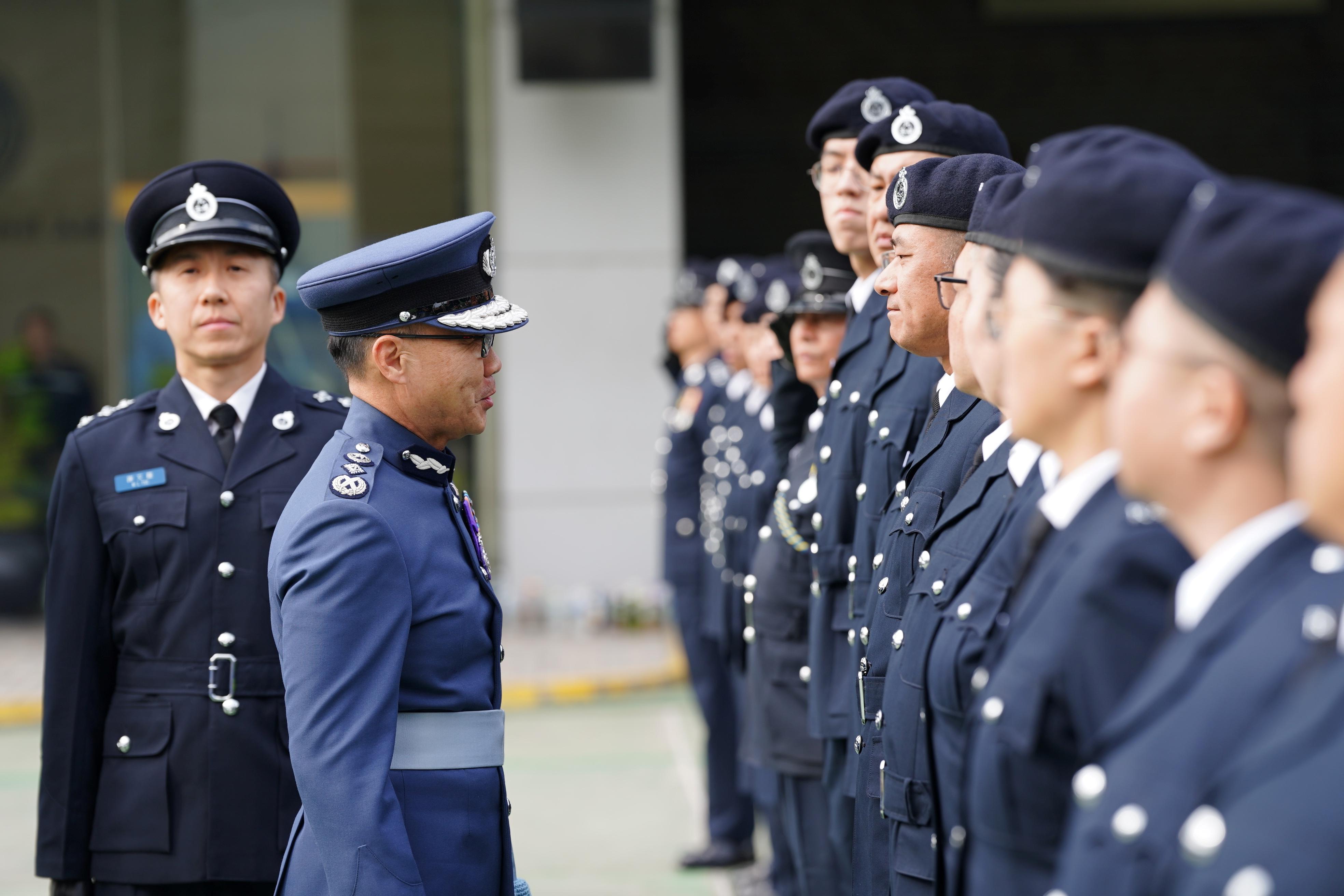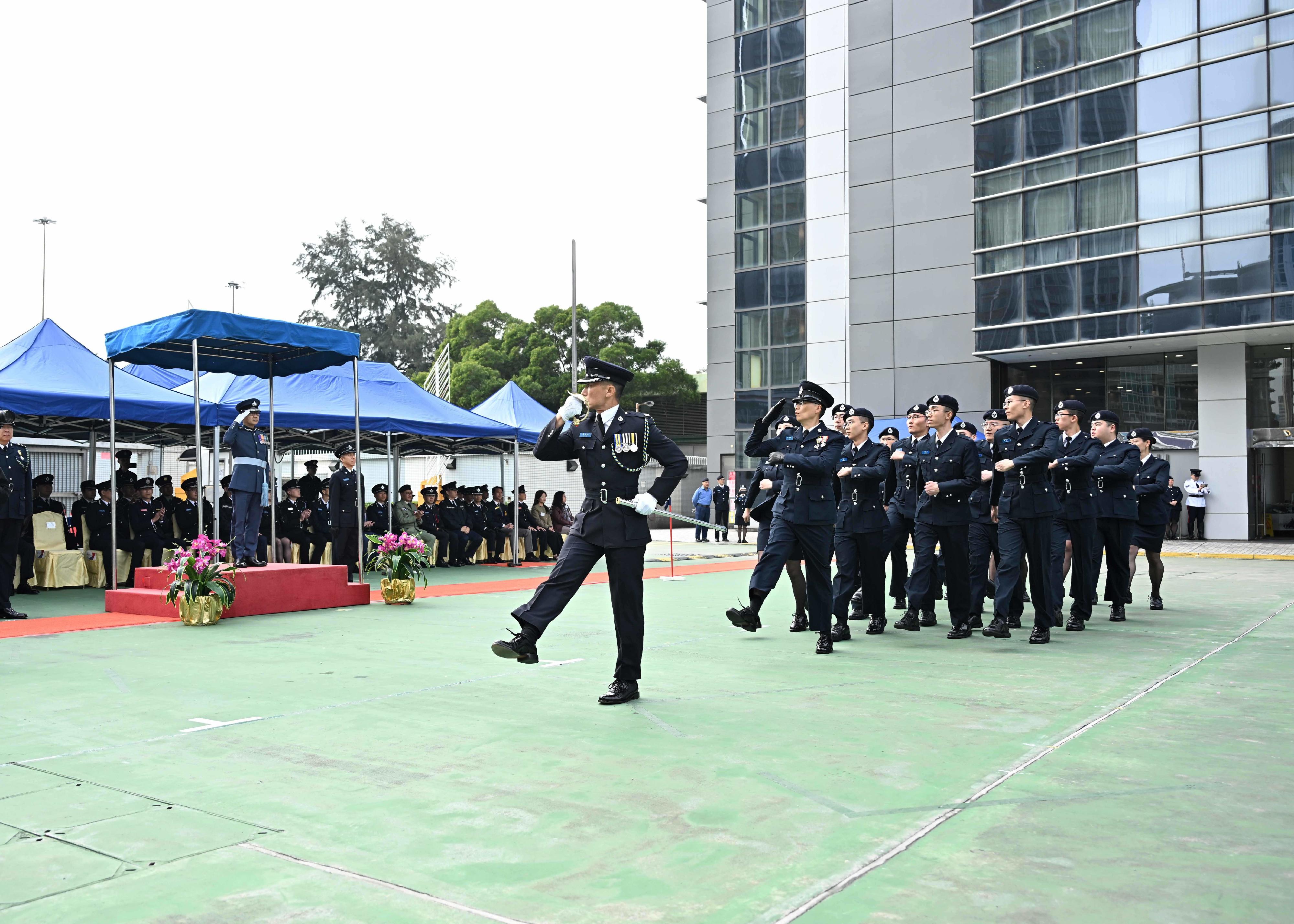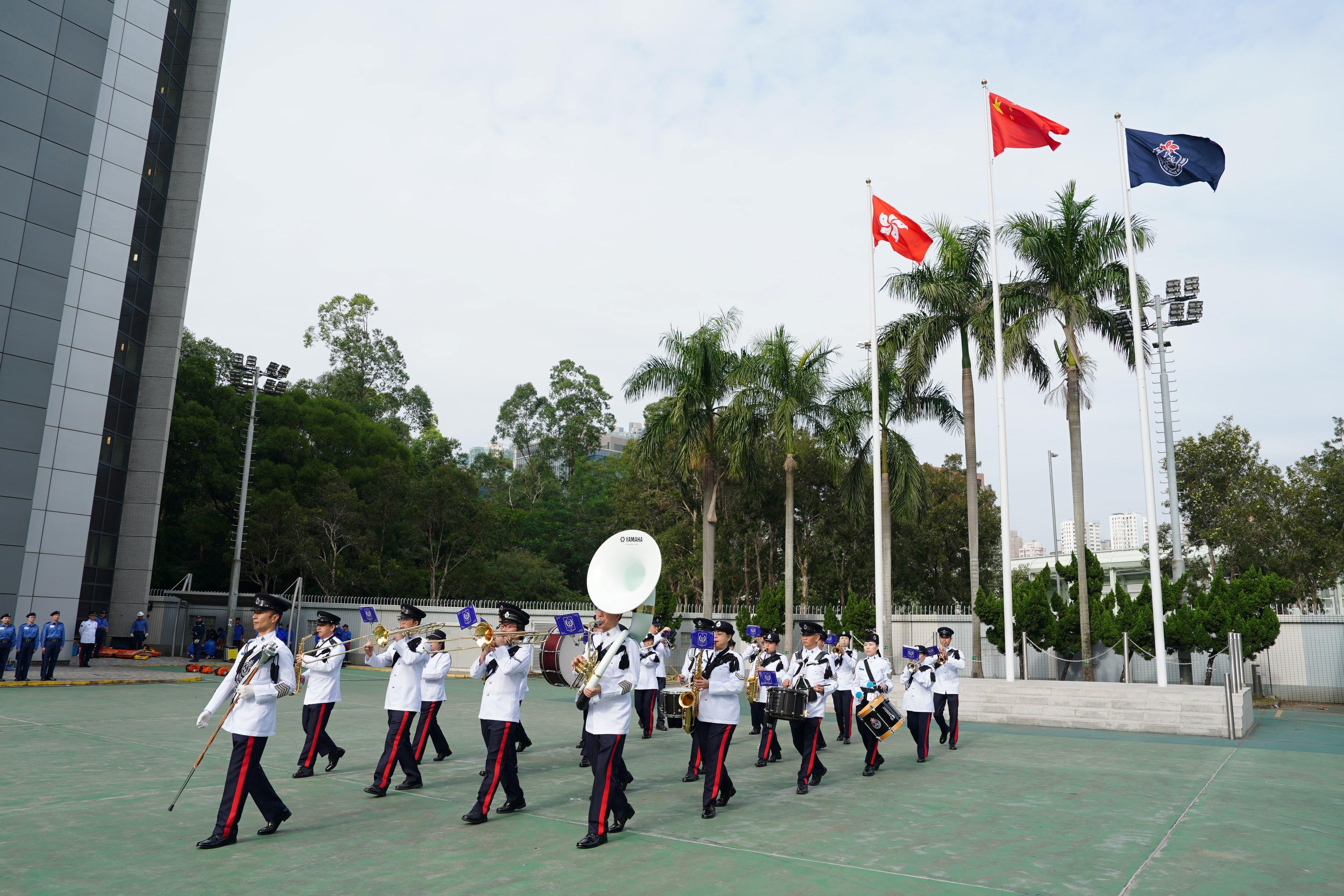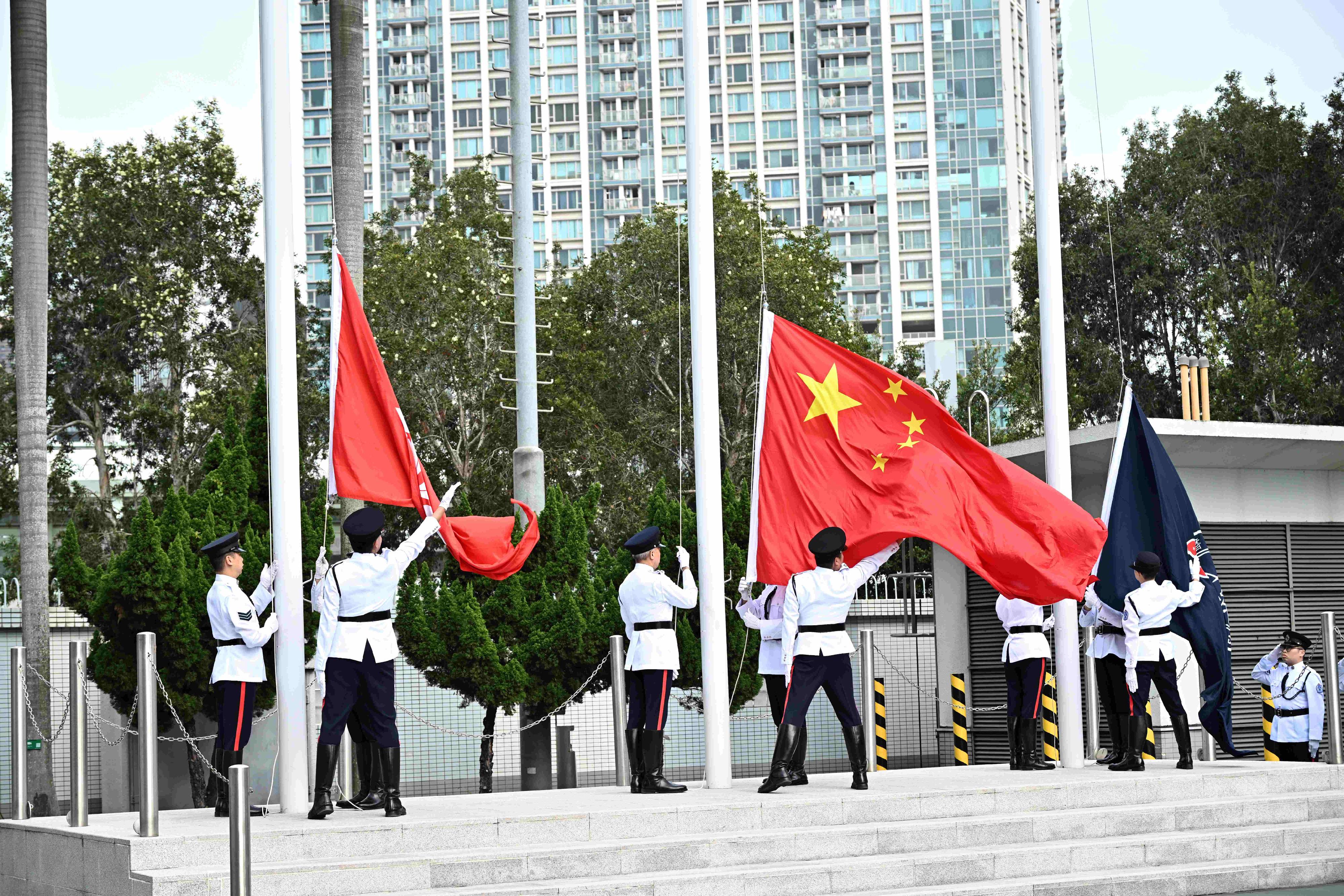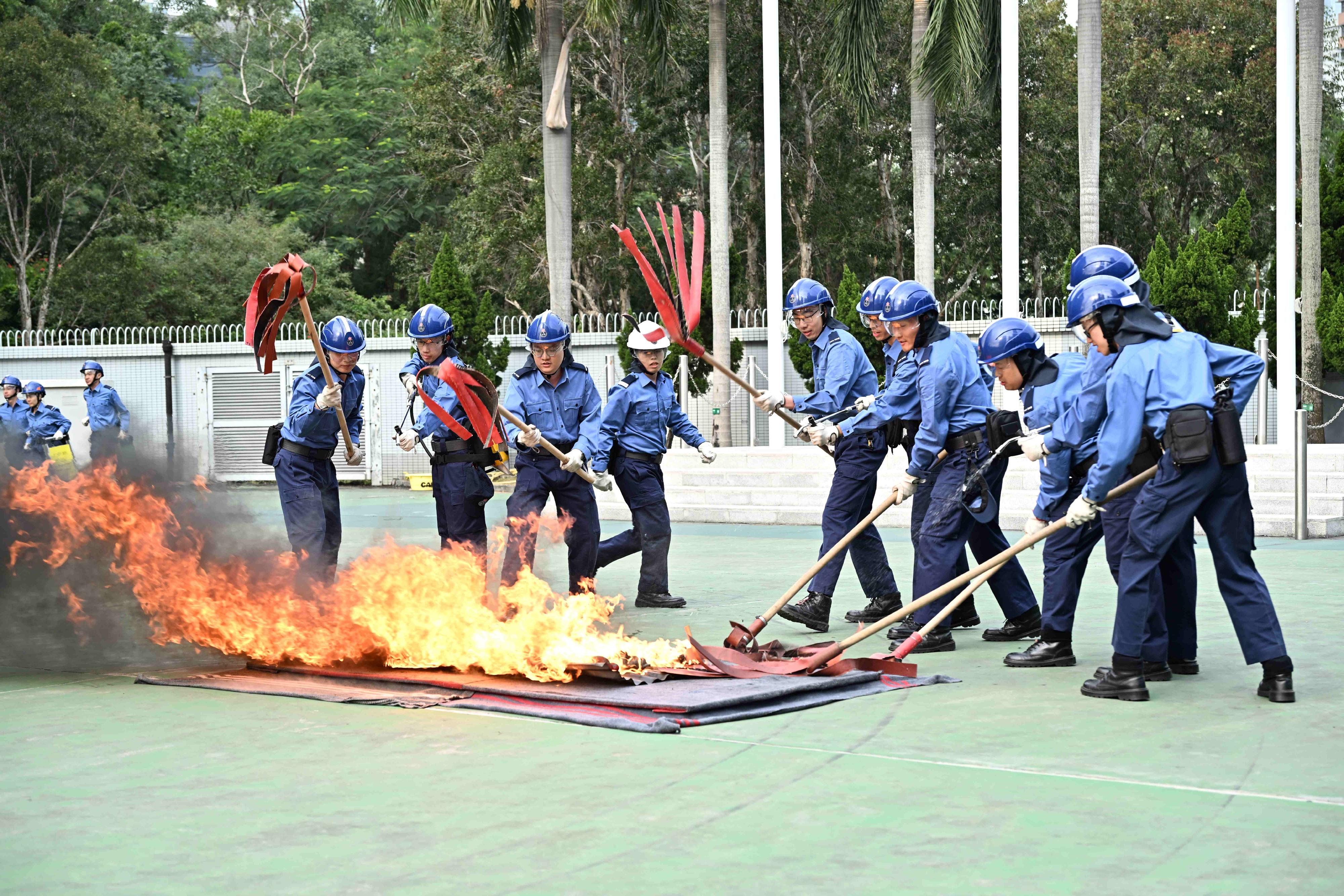EDB organises Family Fun Party cum Prize Presentation Ceremony (with photos)
The Education Bureau (EDB) organised the Family Fun Party cum Prize Presentation Ceremony today (December 15) at Sai Kung Outdoor Recreation Centre to encourage parents and children to practise healthy lifestyles through engaging in outdoor recreation and sports activities. Around 220 parents and children participated in a parent-child treasure hunt competition under the theme of developing healthy lifestyles, and completed various parent-child challenges together.
The EDB presented awards to the winning schools, students and parents of the parent-child treasure hunt competition as well as the Healthy Living, Happy Family Series – Picturise Your Messages Sticker Design Competition at the prize presentation ceremony of the Fun Party in recognition of their participation in the events of the Positive Parent Campaign and promotion of healthy living.
Speaking at the ceremony, the Under Secretary for Education, Dr Sze Chun-fai, said that self-image as well as the physical and psychological well-being of children and adolescents are closely related to the family. He hoped that parents and children could recognise and experience the importance of developing healthy lifestyles through this experiential activity and incorporate these experiences into their daily lives.
The EDB has earlier organised the Healthy Living, Happy Family Series – Picturise Your Messages Sticker Design Competition to encourage parents to develop healthy lifestyles with their families to enable the happy and healthy development of their children. The competition comprises three groups, namely kindergarten, primary and secondary groups. It was well received and over 4 000 entries were recorded from more than 5 600 parents and students. Participants conveyed the message of developing healthy lifestyles in different ways, and most of the entries were creative and echoed the theme of heathy living. The adjudication panel had earlier selected 15 outstanding entries in each group for online voting by the public.
The EDB has been running the Positive Parent Campaign since June 2020 to promote positive parent education through extensive and diversified channels with a view to fostering parents' positive thinking and promoting proper ways and attitudes of nurturing children, thereby developing in parents a positive and optimistic mindset that contributes to the effective learning and happy development of children. For the latest information of the Positive Parent Campaign, please visit the EDB Smart Parent Net website (www.parent.edu.hk/en) or follow the Facebook (www.facebook.com/parents.edu.hk) and Instagram pages (www.instagram.com/parents.edu.hk) of the Smart Parent Net.
